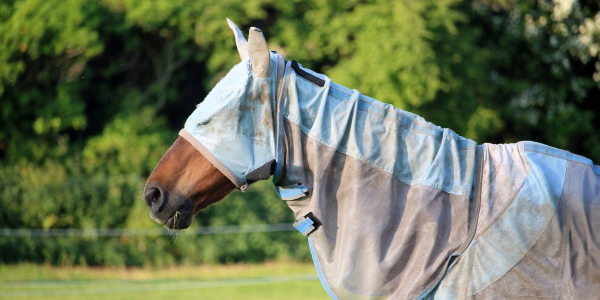
EFFECTIVE INSECT CONTROL STRATEGIES FOR HORSES
Insects are more than just a nuisance for horses – they can spread disease, cause discomfort and can lead to skin and health problems such as conjunctivitis, sweet itch and aural plaques. Implementing a comprehensive insect control programme is essential for equine well-being, especially during peak fly seasons. Here are our key strategies to help you and your horse this summer.
Environmental Management
Control begins at the source. Removal of droppings from pasture at least once daily will help with reducing fly numbers (and of course, is all part of good worm prevention)! Proper drainage around stables and pastures helps reduce numbers of midges, and muck heaps should be kept at as far a distance away from your stables as possible.
Physical Barriers and Repellents
Fly masks and sheets provide a physical defence against biting insects. For our horses that suffer with sweet-itch, wearing a fly sheet during all hours of the day is essential, starting early in the season before the midges come out to play! Topical sprays and ointments containing DEET or natural oils (e.g. citronella) offer short-medium term protection. We can also prescribe topical solutions or tags containing cypermethrin (typically used to treat lice) which can be used as fly repellents where appropriate for your horse.
Vaccination
A sweet itch vaccine is available and may help reduce sweet itch symptoms in some horses. Whilst this vaccine is for ringworm, it has been used off licence and been reported to assist in managing clinical of sweet itch. The vaccine is administered as a two injection course, prior to the start of midge season (typically around March).
If you would like to learn more, feel free to contact our office on 01772 861300 to speak with one of our vets.
